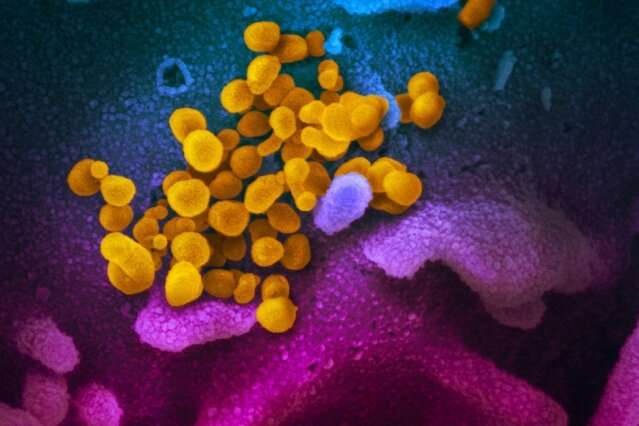This scanning electron microscope image shows SARS-CoV-2 (yellow)—also known as 2019-nCoV, the virus that causes COVID-19—isolated from a patient, emerging from the surface of cells (blue/pink) cultured in the lab. Credit: NIAID-RML
Nearly half of COVID-19 patients have digestive issues—vomiting, diarrhea, nausea and abdominal pain. In a new Loyola Medicine video, "Coronavirus (COVID-19): Digestive and GI Symptoms," gastroenterologist Amar Naik, MD, offers treatment strategies for managing these lesser known symptoms, as well as precautions that should be taken in the home to reduce the likelihood of spreading COVID-19.
First, it's important that patients with COVID-19 and digestive issues remain hydrated. Dr. Naik suggests regularly replacing lost fluids with water, sports drinks and broths. He said an "oral rehydration solution" can be easily made at home by mixing one liter of water with six level teaspoons of sugar and one-half teaspoon of salt until the salt and sugar dissolve.
"If someone in your home is suspected or confirmed of having COVID-19, and especially if they are having digestive symptoms, there are precautions that should be taken to minimize the spread of this disease," said Dr. Naik. They include:
- Isolating from others within the home, including pets.
- Wearing a mask.
- Washing hands frequently, especially after using the restroom.
- Routinely cleaning the bathroom and other high-touch surfaces (such as doorknobs) in the home with bleach.
- Closing the lid before you flush the toilet.
- If at all possible, using a separate bathroom.
Coronavirus (COVID-19): Digestive and GI Symptoms. Credit: Loyola University Health System
Provided by Loyola University Health System
























